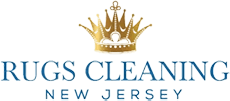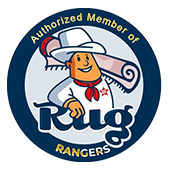Within 25 Miles of Green Brook
Within 25 Miles of Green Brook
Understanding Rug Repair: Common Issues and When to Call the Experts
Area rugs, especially handwoven Oriental and Persian pieces, are durable investments designed to last decades. However, even the most well-maintained rugs eventually show signs of wear, damage, or deterioration. Understanding common rug problems and knowing when professional intervention is necessary can mean the difference between a simple repair and an irreparable loss. Here's what every rug owner should know about rug damage and restoration.
Fraying and Damaged Edges
The most common issue affecting area rugs is edge damage. The binding or overcast edges that finish a rug's perimeter are vulnerable to wear from foot traffic, vacuum cleaners, and furniture placement. You might notice loose threads, unraveling corners, or completely missing sections of edging. This type of damage progresses quickly—what starts as minor fraying can rapidly deteriorate, allowing the rug's foundation to unravel and causing structural damage that extends into the rug's body.
Professional edge repair involves reweaving or re-binding the damaged areas to match the original construction. Addressing fraying early prevents costly repairs later and maintains your rug's structural integrity and value.
Moth Damage and Fiber Loss
Moth larvae feed on natural fibers like wool, silk, and cotton, creating irregular holes and thin patches in your rug. Many homeowners don't discover moth infestations until significant damage has occurred, as moths prefer dark, undisturbed areas beneath furniture. You might notice small cocoons, webbing, or sandy-textured debris near damaged areas.
Moth damage requires immediate professional attention. Experts can treat the infestation, clean the affected areas, and reweave damaged sections by hand-knotting new fibers that match the original pile height and color. Delaying treatment allows the infestation to spread, potentially destroying irreplaceable heirloom pieces.
Holes, Tears, and Pet Damage
Accidents happen—furniture legs puncture fibers, pets scratch and chew corners, or moving mishaps create tears and holes. These openings expose the rug's foundation to additional stress and accelerate deterioration around the damaged area. What might seem like a small problem can quickly expand as the weakened structure gives way under normal use.
Professional rug repair specialists can reweave damaged sections, matching the original knot pattern, pile height, and colors. Skilled artisans essentially recreate the missing portion, making repairs virtually invisible once complete.
Color Bleeding and Dye Migration
Exposure to water from spills, cleaning attempts, or flooding can cause natural dyes to bleed or migrate, creating blurred patterns or discolored patches. This is particularly problematic in older rugs or those made with unstable dyes. Once color bleeding occurs, it requires professional color correction techniques to restore the original appearance.
Attempting DIY repairs for dye issues typically worsens the problem, as improper treatments can cause additional bleeding or permanently set the discoloration.
Foundation Damage and Dry Rot
The foundation—the warp and weft threads that form a rug's base—can deteriorate from age, moisture exposure, or chemical damage. Signs include brittleness, powdery residue, or the rug feeling weak when handled. Foundation damage compromises the entire rug's structural integrity and cannot be repaired by homeowners.
Professional assessment determines whether foundation damage can be repaired or if the rug requires complete restoration. Some foundation issues can be addressed by reinforcing weakened areas or replacing damaged sections.
Trust the Experts
Not all rug damage requires professional repair, but attempting complex repairs without proper training and materials often causes more harm than good. Our experienced team serving Bridgewater and Warren, NJ provides comprehensive rug cleaning and repair services, restoring your treasured pieces to their former glory. Contact us today for a professional assessment and preserve your rug's beauty and value for years to come.


